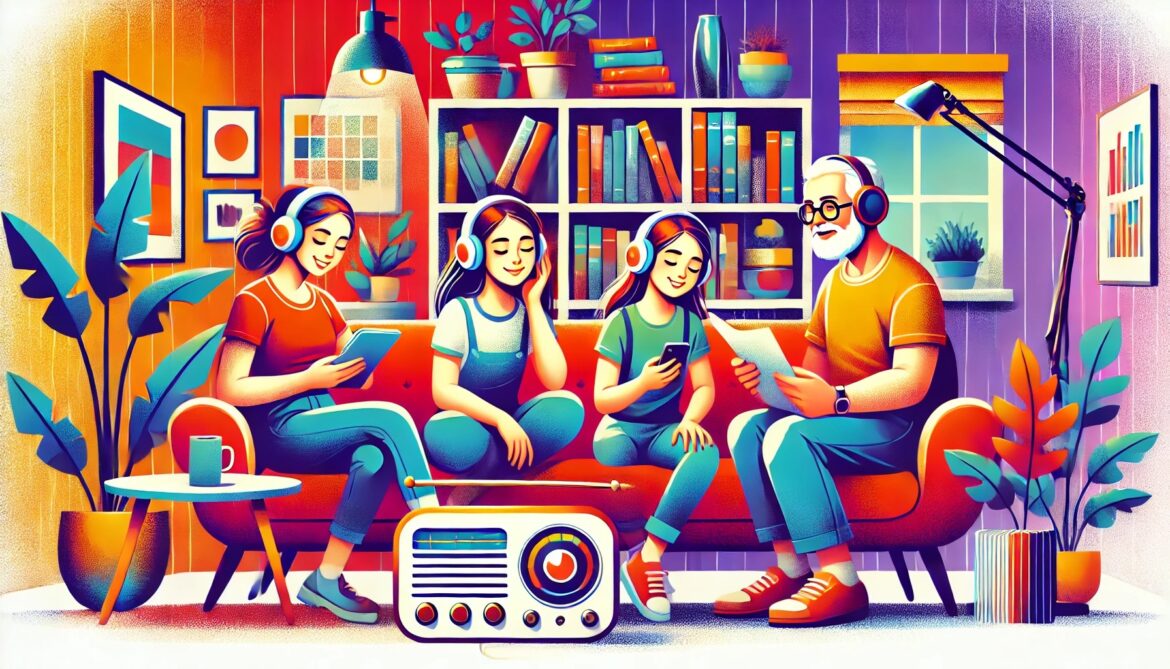Why NPR’s newsmag tweaks are a gamble worth taking

Mike Janssen, using DALL-E 3
As a proud public radio lifer, I’ve had many “driveway moments.” But not my young adult daughters. Raised on public media, they listen to podcasts and tune in to Spotify and YouTube for faster-paced conversations and humor. If NPR provided more of that on their favorite platforms, they might listen more — but not on air.
Which brings me to a recent report by Current’s Tyler Falk about format changes at NPR. Edith Chapin, NPR SVP and editor-in-chief, noted in an email to staff that the newsmagazines will include fewer “scripted” interviews between hosts and reporters and that “each hour of Morning Edition and ATC will feature no more than one element longer than five minutes.”
The article quoted an email from Eric Marrapodi, VP for news programming, who said the change is “making us focus critically and ask: ‘does this earn every minute?’”
Twentysomethings like my daughters and their friends aren’t the target audience. NPR aims to grow the audience of 40- to 64-year-olds. There’s no way NPR would test these shifts if it didn’t have research to back it up. The fierce competition for “share of ear,” and the irreversible decline in attention span, are certainly steering NPR toward a less formal, less academic vibe.
I’ve already noticed more casual interactions between hosts, including laughter! In some cases the chemistry isn’t there — yet. But I have confidence that NPR’s newsmagazine co-hosts will come to sound more like those on Alt.Latino and Code Switch. They sound like real friends who are having fun, and their deep dives into music and racial issues have earned listeners’ trust.
Eric Nuzum, a former programming VP at NPR and Audible, wrote a takedown of NPR’s strategy on his Substack The Audio Insurgent. He’s a highly respected expert on public radio and podcasting. That’s why Current published a version of his dispatch. But IMHO, his criticism of NPR goes overboard.
Nuzum said he’s relieved NPR is trying to “correct audience erosion issues that should have been addressed years ago.” But he also concluded that it’s too little too late and that research shows that listeners say NPR is too boring. “I know exactly what will happen,” he asserted. “This strategy will do nothing to slow, stop, or reverse public radio’s decline.”
To me, there’s no doubt that a livelier presentation and coverage of topics of concern to midlifers, such as personal finance and health and wellness, will have a positive effect. As Tyler reported, NPR’s programs will also focus on joy, wonder and delight. We need more of that!
Still, in our divided country most Americans resist content that challenges their worldview. Some core listeners, like my friends, have overdosed on bad news and are avoiding stories about things they feel powerless to change. I disagree with Nuzum’s conclusion that public radio is destined to fail. He’s right about terrestrial radio, but it’s too early to be so discouraging and dismissive of this new experiment. If it doesn’t produce the intended result, NPR will probably pivot and try something else. Let’s give it a chance and hope for the best.





